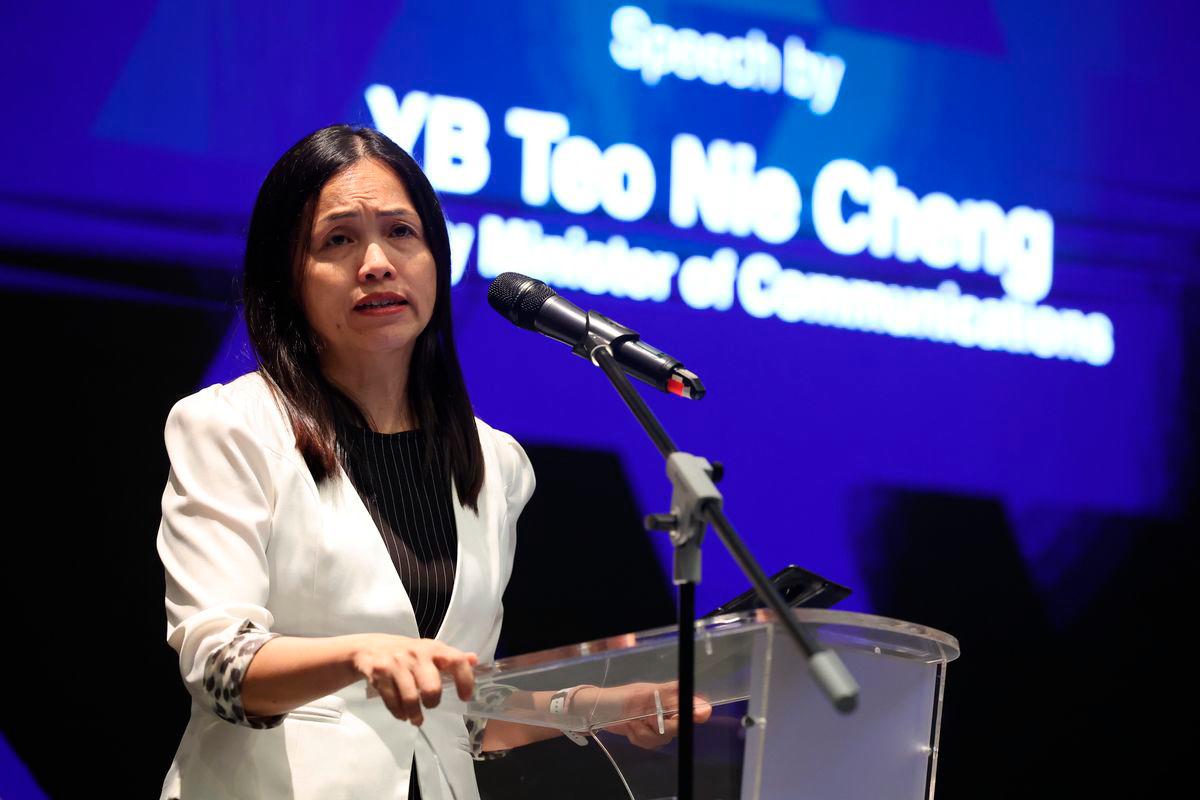KUALA LUMPUR: Malaysia has officially launched the Strategic Artificial Intelligence (AI) Infrastructure, becoming the first in the region to activate a sovereign, full-stack artificial intelligence (AI) ecosystem.
Ministry of Communications Deputy Minister Teo Nie Ching said the move marks an important step in the country’s AI development, as localising large language models like DeepSeek and hosting servers domestically would enhance AI sovereignty by ensuring data is processed locally, thus safeguarding user privacy and data security.
“The special thing about this project is that the data will be stored in Malaysia, it will be managed by Malaysians, and it will be used by Malaysians as well, so this is how we can actually safeguard our AI sovereignty.
“(With this) now it’s no longer like the cloud or the data centre is overseas, but it’s now purely in Malaysia -- server also in Malaysia, managed by Malaysia, and the AI agents will also be developed by Malaysians. I think this is how we can localise the AI application in Malaysia,” she said.
Teo was speaking at a press conference after officiating the launch of the Strategic AI Infrastructure: Trusted, Sovereign and Global, here today.
Teo also noted that the project marks the first deployment of Huawei’s chips and servers, along with the DeepSeek large language model, outside of China, making it a regional first.
“So this is first of the kind outside China, we are very proud, meaning that in terms of AI adoption and AI application, Malaysia indeed truly will be the leader in ASEAN, in terms of AI application and adoption,“ she said.
Described as the country’s first complete national AI infrastructure, the platform is designed to empower the government, businesses and universities to leverage AI in improving services, boosting productivity and driving innovation.
At the event, Teo also launched Malaysia’s first sovereign generative AI environment, powered by the AlterMatic DT250 AI Server, which features eight high-end graphics processing units (GPUs).
The system offers 20 per cent higher performance and 30 per cent energy savings compared to industry peers, and hosts the DeepSeek open-source large language model, making it the first national-scale sovereign LLM deployed in Malaysia.
Early adopters already onboard include the Prime Minister’s Office, Ministry of Communications, Permodalan Negeri Selangor Berhad (PNSB), Cyberview Sdn Bhd and Universiti Teknologi Malaysia (UTM).
Skyvast and Leadyo also announced a roadmap to deploy 3,000 advanced GPUs across multiple infrastructure zones by 2026, supported by a growing ecosystem of Malaysian AI delivery and integration partners.
Teo also witnessed the launch of the Malaysia-China Trusted Data Zone, the first bilateral corridor linking Cyberjaya, Malaysia, and the China (Shanghai) Pilot Free Trade Zone Lin-gang Special Area, aimed at enabling seamless cross-border AI development through infrastructure, joint innovation platforms and digital capability integration.
The Malaysia-China Trusted Data Zone is operated by Skyvast Data on the Malaysian side and Shanghai International Data Port Co Ltd (SHIDP) on the China side, ensuring bilateral operational alignment and continuity.
When asked why Malaysia was chosen for the collaboration, Leadyo Systems Chief Executive Officer Zhang Yifeng said Malaysia offers one of the best industrial environments in the region.
“Looking at a good bilateral relationship between China and Malaysia, as well as readiness of the Malaysian market in terms of semiconductor manufacturing, in terms of the infrastructure readiness, as well as the skill sets of the talents available in Malaysia.
“That’s why companies like Leadyo Systems and even Huawei decided to select Malaysia as the first country to launch such an advanced GPU (technologies),“ he said.
Meanwhile, Skyvast Data Chief Executive Officer Lim Chee Siong said the Perlis Advanced Tech Park project is progressing and is expected to be ready in the next two years.
He said the Digital Twin Park will be integrated into the Perlis Advanced Tech Park upon completion, while the design phase of a trusted data zone linking Perlis and Shanghai’s Lin-gang has already begun.
“For Cyberjaya, it’s already happening as we have identified data centre clusters that were mapped into Shanghai’s Lin-gang,“ he added.









